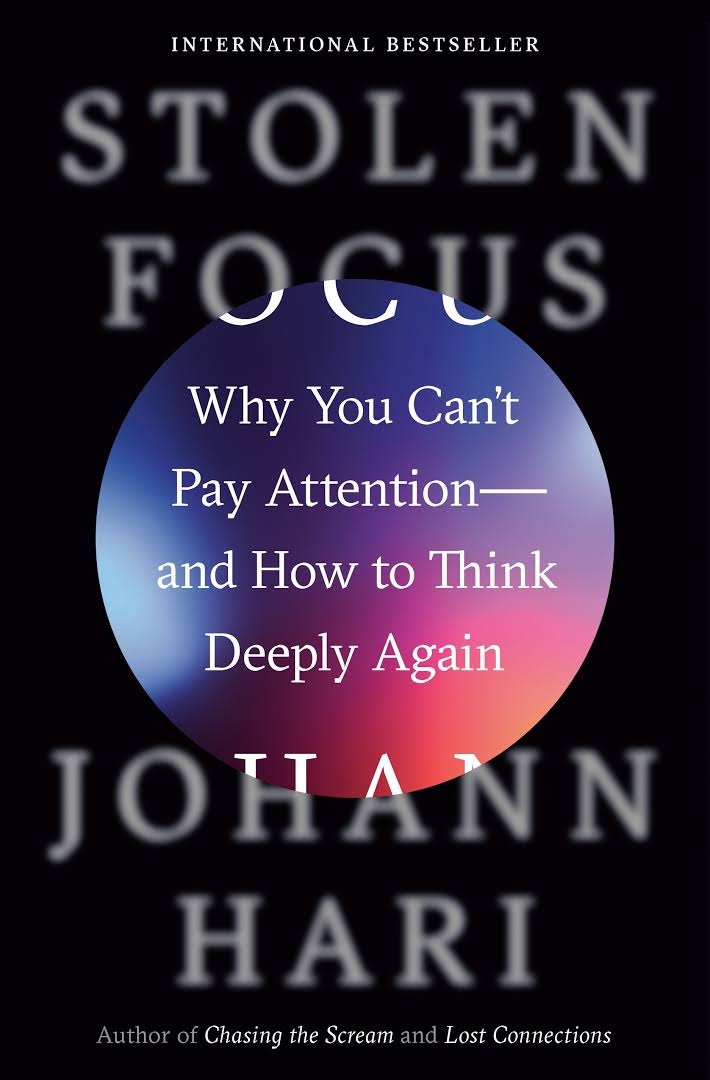Stolen Focus – Cruel Optimism
I’ve stumbled upon this interesting concept from the book Stolen Focus. It’s called Cruel Optimism:
Ronald gave lots of examples of this idea, which was first coined by the historian Lauren Berlant. I started to really grasp this idea when he applied this concept to one that’s related to attention but separate from it—stress. I think it’s worth taking a little time to go through it, because I believe it can help us see a mistake that Nir—like many of us—is making when it comes to focus.
Ronald talked to me about a bestselling book by a New York Times reporter that tells its readers: “Stress isn’t something imposed on us. It’s something we impose on ourselves.” Stress is a feeling. Stress is a series of thoughts. If you just learn how to think differently—to quiet down your rattling thoughts—your stress will melt away. So you just need to learn to meditate. Your stress comes from a failure to be mindful.
This message sings off the page with optimistic promise—but Ronald points out that in the real world, the top causes of stress in the U.S. have been identified by scientists at Stanford Graduate School of Business in a major study. They are “a lack of health insurance, the constant threat of layoffs, lack of discretion and autonomy in decision-making, long working hours, low levels of organizational justice, and unrealistic demands.” If you don’t have health insurance and you have diabetes and you can’t afford insulin, or if you are forced to work sixty hours a week by a bullying boss, or if you are watching your colleagues get laid off one by one and you suspect with a sickening feeling that you will be next, your stress is not “something we impose on ourselves.” It is something imposed on you.
Ronald thinks that meditation can help some people, and I agree, but that this typical bestselling book, which tells you to meditate your way through stress and humiliation, is “bullshit…. Tell it to Hispanic women working three jobs with four kids.” The people who say stress is just a matter of changing your thoughts are, he says, talking “from a privileged position. It’s easy for them to say that.” He gave me the example of a company that was cutting back on providing healthcare to some people— and was, at the same time, congratulated by the same New York Times writer for providing meditation classes to its employees. You can see clearly how this is cruel. You tell somebody there’s a solution to their problem—just think differently about your stress and you’ll be fine!—and then leave them in a waking nightmare. We won’t give workers insulin, but we’ll give them classes on how to change their thinking. It’s the twenty-first-century version of Marie Antoinette saying, “Let them eat cake.” Let them be present.
While at first glance, cruel optimism seems kind and optimistic, it often has an ugly aftereffect. It ensures that when the small, cramped solution fails, as it will most of the time, the individual won’t blame the system— she will blame herself. She will think she screwed up and she just wasn’t good enough. Ronald told me, “it deflects attention away from the social causes of stress,” like overwork, and it can quite quickly turn into a form of “victim-blaming.” It whispers: the problem isn’t in the system; the problem is in you.
